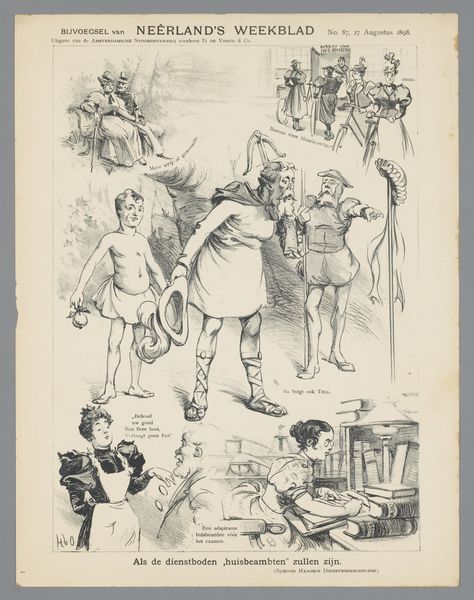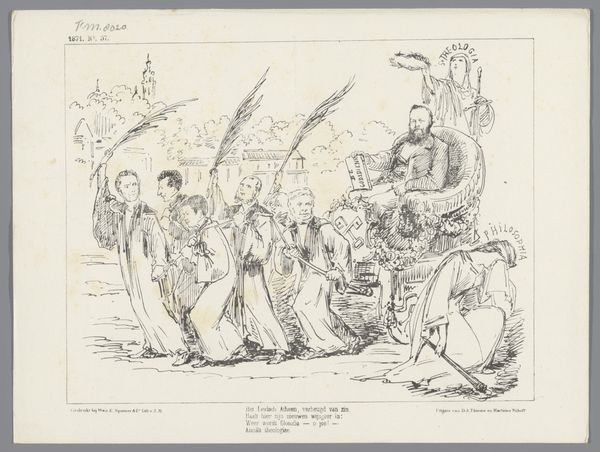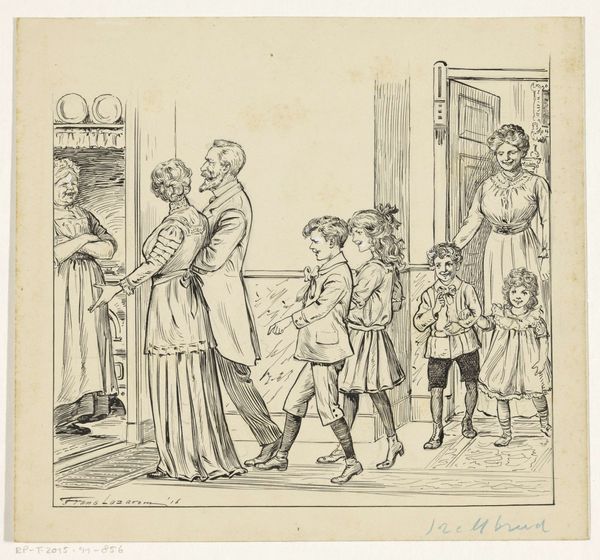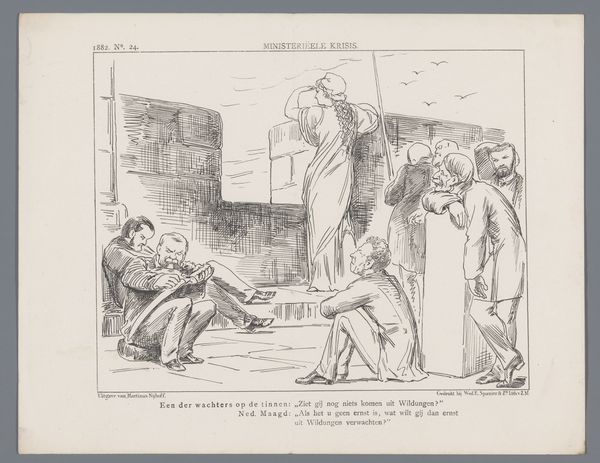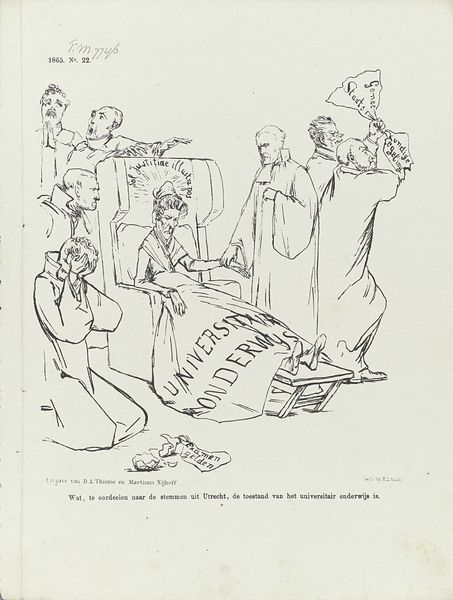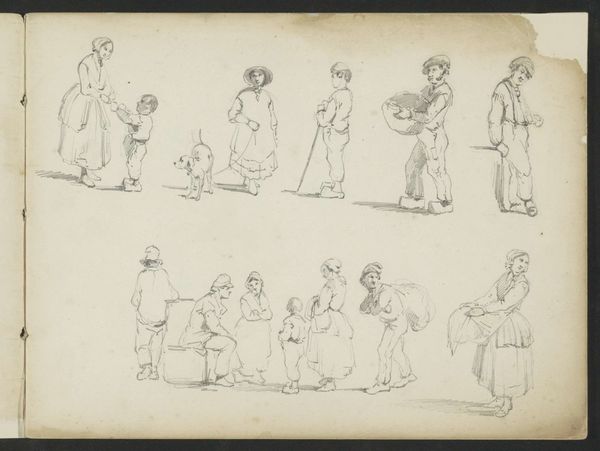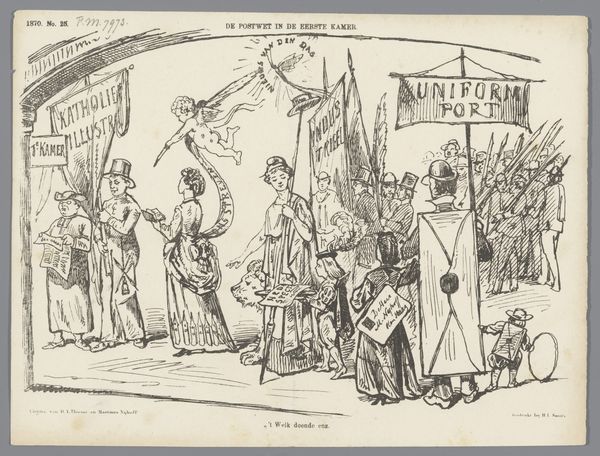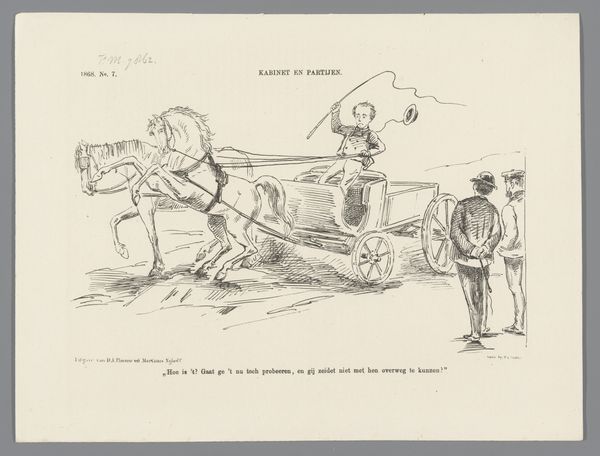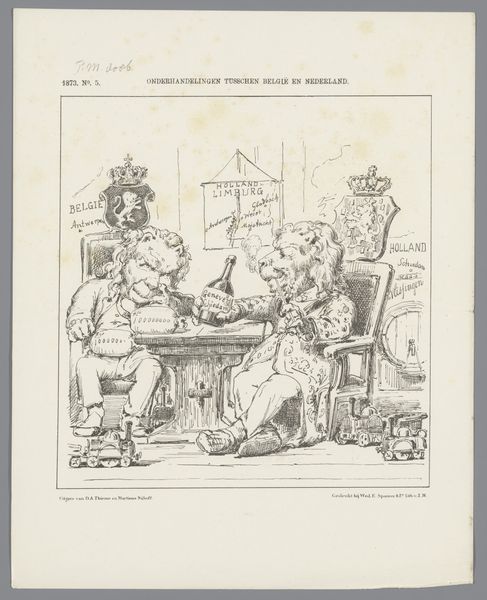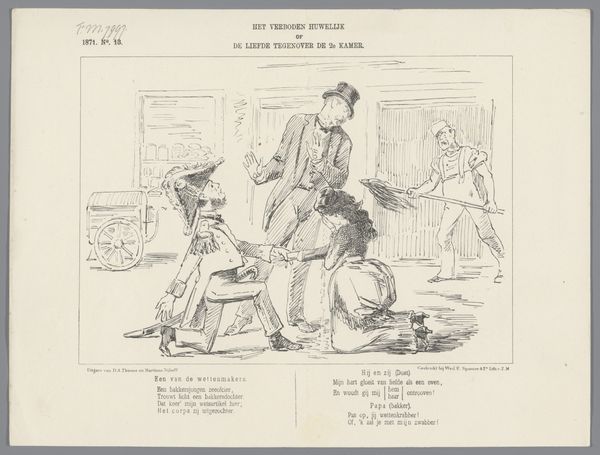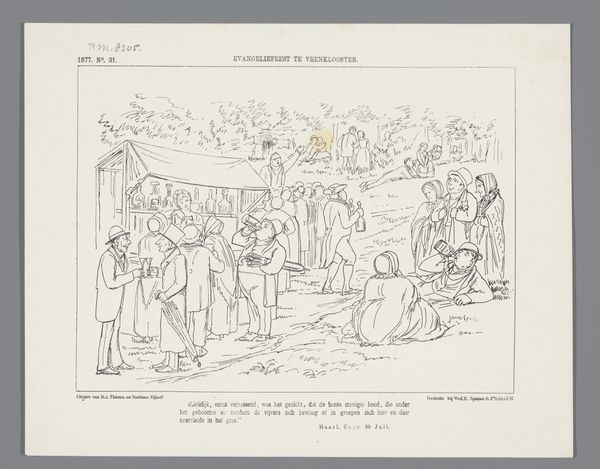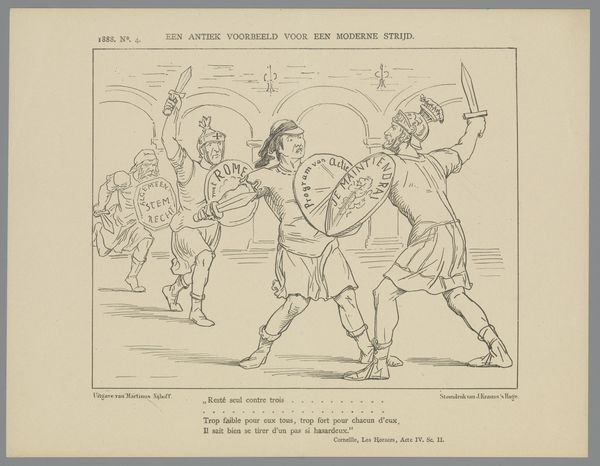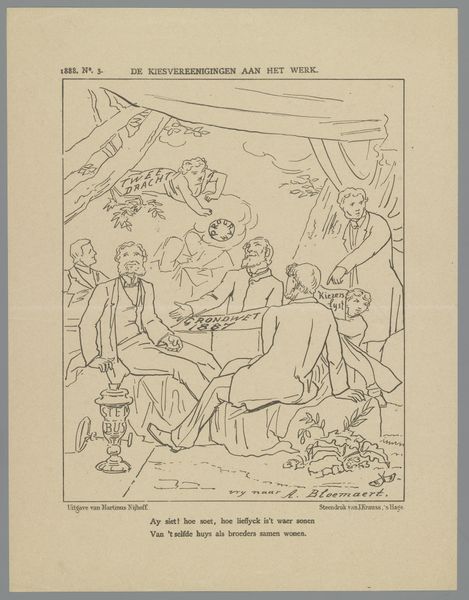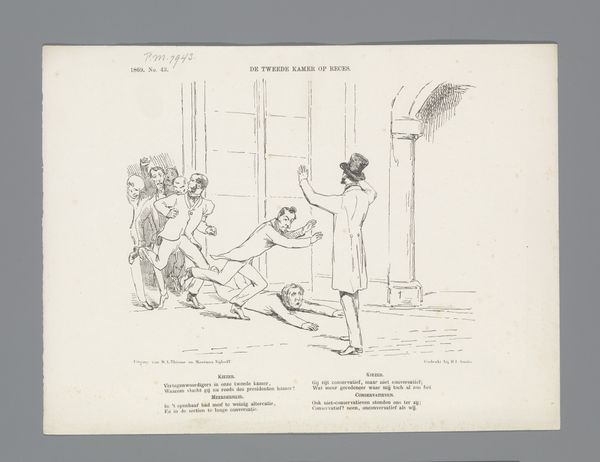
drawing, print, ink, pen
#
drawing
#
comic strip sketch
#
narrative-art
# print
#
caricature
#
sketch book
#
cartoon sketch
#
personal sketchbook
#
ink
#
sketchwork
#
ink drawing experimentation
#
pen-ink sketch
#
comic
#
sketchbook drawing
#
pen
#
storyboard and sketchbook work
#
sketchbook art
#
modernism
Dimensions: height 60 cm, width 40 cm
Copyright: Rijks Museum: Open Domain
Editor: This intriguing ink drawing, possibly from 1897, is titled "De Schutterijwet is jarig. 1827-11 april 1897," created by Willem van Konijnenburg. The style feels very much like a cartoon or comic. There’s a gathering, perhaps a party. What symbols stand out to you in this image? Curator: The most potent symbol, given the title, is the Schutterijwet itself – the law regarding the civic guard. Observe how it's visually represented through the uniformed figures, and juxtaposed with "Neefje Bahlmann met zijn wetje" at the bottom of the sketch. There is clear cultural commentary happening here. How does the artist use imagery to portray perhaps a generational attitude toward tradition, law, and societal roles? Editor: So, you're suggesting that these characters, like "Neefje Bahlmann", may represent different perspectives on the Schutterijwet and its impact on Dutch society? Curator: Precisely! And note how the artist has used caricature. The exaggerated features aren't just humorous; they serve to highlight specific characteristics, social roles, or even the perceived flaws within that society. Consider the floral imagery. Who is presenting the bouquet, and to whom? What message might this juxtaposition convey within the context of a celebration? Editor: It looks like the floral presentation is to the central female figure, and she’s also holding a fan. The flowers represent something, and perhaps the fan implies coyness? There’s a cat sitting calmly by her chair, maybe as a sign of domesticity? Curator: Perhaps! The artist is carefully curating our view into this moment. The placement of figures, their attire, and even that seemingly innocent cat all contribute to the narrative. Don’t forget the architectural detail on her chair. Editor: That's fascinating! I see so much more in this drawing now than I initially did. The symbolism really enriches its meaning. Curator: Indeed. The beauty of iconography lies in its ability to unlock layers of cultural memory, revealing deeper connections to history and society, and we are looking into the visual manifestation of cultural norms and, potentially, subtle rebellion.
Comments
No comments
Be the first to comment and join the conversation on the ultimate creative platform.
